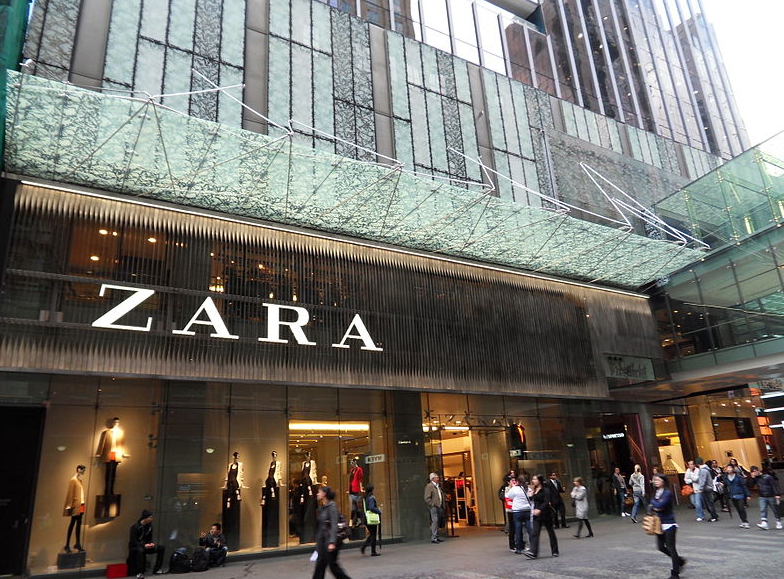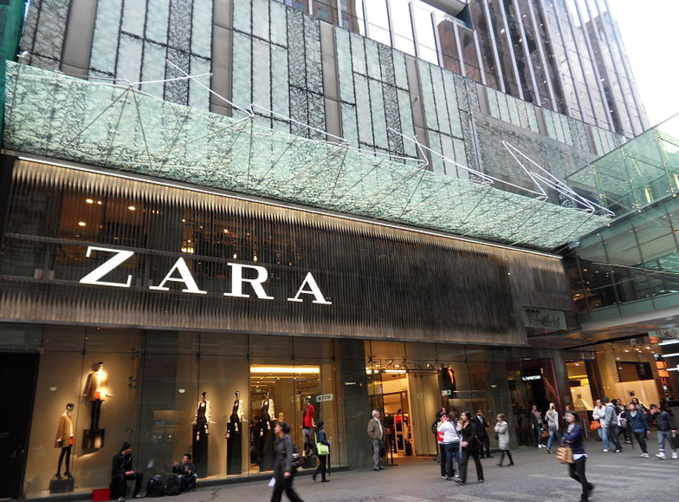According to Forbes, it’s not the first time when Ortega has got ahead. This happened recently on Wednesday, September 7, when Inditex’s shares on the market went up by 2.5%, resulting in Ortega’s wealth, according to the publication, increased by $ 1.7 billion. By Friday morning, Bill Gates regained the lead: Inditex shares fell 2.8%, and Ortega’s capital declined to $ 77.8 billion, the magazine writes. "Easy come, easy go."- writes Dan Alexander, a journalist of Forbes.
According to Forbes, Amancio Ortega is the richest businessman in Spain, and the richest retailer in the world. In the autumn of 2015, the creator of Zara brand managed to outstrip Gates in the ranking.
The founder of Zara says that money is not the most important thing. It is more important to be able to set goals, and do everything for the sake of achieving them. "Doing business just for money is a waste of time. When you earn as much as we do, it is obvious that we are unlikely to need more. For me, money has only one value. We need it to achieve our objectives. And if you are successful, it is useful to help those who depend on us, so that their lives become better"- says Ortega.
Speed has always been important for Amancio Ortega: speed of production, delivery speed and speed of updating design of clothes. Ortega set a rule: model range in Zara stores should be updated every two weeks, and delivery to warehouses must be carried out within 48 hours.
Zara offers various and small parties of clothes to customers, and so the brand can always count on the fact that everything will be sold out. If some things are not in demand, they are quickly replaced by more popular. Customers visit other clothing stores on average four times per year, but they drop in about 17 times per year in Inditex shops.
Ortega encourages his customers to regularly update their wardrobes. Back in the 90's, journalists wrote that Ortega changed consumer habits of people: "We are already beginning to determine a Zara-mania in the habits of consumers: buy the most fashionable things to easily get rid of them in the next year."
The first Zara opened in 1975 in La Coruña. In 1980, the retailer had already covered the entire Spain. However, it was not enough for Ortega - he wanted to win all fashion capitals. In 1988, he opened the first Zara store in Portugal, in 1989 - in New York, and in 1990 - in Paris. "Even when I was a nobody, and had almost nothing, I dreamed of development and growth. We have never rest on our laurels, and have not chosen easy ways. Optimism can be a very negative emotion. We have to take risks! There are new ideas every day, and we do not have any preset plans. Growth is a survival mechanism. Without growth, a company is dying,"- said Ortega.
By the mid-1980s, Ortega knew that one brand is not enough to satisfy all categories of customers as Zara was mostly popular among middle-class women. In 1991, he established Pull & Bear, a brand of inexpensive casual wear. Then, he bought a stake in Massimo Dutti, which dressed clients with incomes above the average (now the brand is wholly owned by him). In 1998, there was Bershka, offering clothes for young party girls, and in 1999, Ortega has bought its main competitor in the teenage clothing market - Stradivarius. Nowadays, Inditex is the largest group of companies in the apparel market, which includes more than 6777 stores in 88 countries.
source: forbes.com, 'The Man from Zara: The Story of the Genius Behind the Inditex Group' by Covadonga O'Shea
According to Forbes, Amancio Ortega is the richest businessman in Spain, and the richest retailer in the world. In the autumn of 2015, the creator of Zara brand managed to outstrip Gates in the ranking.
The founder of Zara says that money is not the most important thing. It is more important to be able to set goals, and do everything for the sake of achieving them. "Doing business just for money is a waste of time. When you earn as much as we do, it is obvious that we are unlikely to need more. For me, money has only one value. We need it to achieve our objectives. And if you are successful, it is useful to help those who depend on us, so that their lives become better"- says Ortega.
Speed has always been important for Amancio Ortega: speed of production, delivery speed and speed of updating design of clothes. Ortega set a rule: model range in Zara stores should be updated every two weeks, and delivery to warehouses must be carried out within 48 hours.
Zara offers various and small parties of clothes to customers, and so the brand can always count on the fact that everything will be sold out. If some things are not in demand, they are quickly replaced by more popular. Customers visit other clothing stores on average four times per year, but they drop in about 17 times per year in Inditex shops.
Ortega encourages his customers to regularly update their wardrobes. Back in the 90's, journalists wrote that Ortega changed consumer habits of people: "We are already beginning to determine a Zara-mania in the habits of consumers: buy the most fashionable things to easily get rid of them in the next year."
The first Zara opened in 1975 in La Coruña. In 1980, the retailer had already covered the entire Spain. However, it was not enough for Ortega - he wanted to win all fashion capitals. In 1988, he opened the first Zara store in Portugal, in 1989 - in New York, and in 1990 - in Paris. "Even when I was a nobody, and had almost nothing, I dreamed of development and growth. We have never rest on our laurels, and have not chosen easy ways. Optimism can be a very negative emotion. We have to take risks! There are new ideas every day, and we do not have any preset plans. Growth is a survival mechanism. Without growth, a company is dying,"- said Ortega.
By the mid-1980s, Ortega knew that one brand is not enough to satisfy all categories of customers as Zara was mostly popular among middle-class women. In 1991, he established Pull & Bear, a brand of inexpensive casual wear. Then, he bought a stake in Massimo Dutti, which dressed clients with incomes above the average (now the brand is wholly owned by him). In 1998, there was Bershka, offering clothes for young party girls, and in 1999, Ortega has bought its main competitor in the teenage clothing market - Stradivarius. Nowadays, Inditex is the largest group of companies in the apparel market, which includes more than 6777 stores in 88 countries.
source: forbes.com, 'The Man from Zara: The Story of the Genius Behind the Inditex Group' by Covadonga O'Shea



















